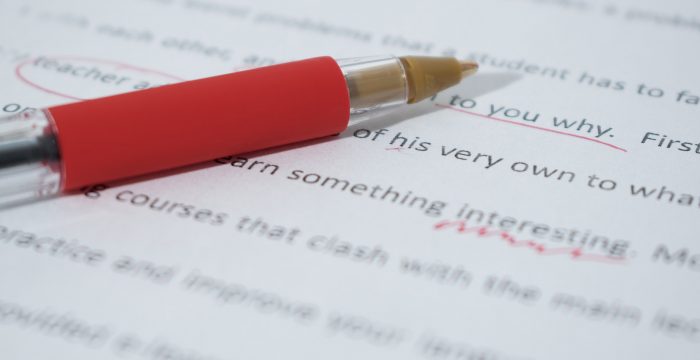“Do you really want me to edit this?”
I nodded, not knowing what I’d asked.
A Christian newspaper requested I write the center spread article on a topic I knew might be controversial. My first opportunity to write for a large readership, I didn’t want to be misunderstood. So I asked our senior minister to edit my article. His willingness was expected but what he returned to me was not. Every page bled from a thousand red pen slashes that cut my heart.
My mentor smiled. “You must see the red on the page as a good thing. Bring your article back tomorrow after you review my suggestions.” I slunk away embarrassed realizing different eyes read my writing differently than I did.
I returned the next day in better spirits, appreciating that my mentor had taken time to help my article be the best it could be. He laughed, “What do you think about my edits?”
“It’s like you did surgery on my article and someone forgot to clean up the blood!”
“I only want to help you say better what you have already said very well. It’s the blessing of the bloody page.”
I took his suggestions learning that editing is gold to the writer.
Here are a few thoughts regarding the editing process.
View your editor as a friend, not the enemy. You chose her to help you think more critically about your writing. A good editor bleeds on your pages.
Trust your editor. She has your best interest at heart. Seriously consider what she suggests, but don’t feel you have to implement her suggestion.
Often the only voice you hear when writing is yours. An editor helps you hear what others say about your work. But also be careful not to lose your voice to please an editor. You have a story to tell. An editor only helps you tell it better. And if asked to edit another’s work, discover that writer’s voice and edit from that vantage point. Editing another’s creative writing is entering her soul. Handle with care.
Lastly, always ask, “Is this necessary to flow of the story or does it slow the reader down?” Too much back story and preaching will cause the reader to put your book down.
Writing is the ecstatic rush. Editing is the hard work to continue that feeling about your work.
After reading the rough draft of my first historical fiction novel, my mother-in-law commented, “I hope you find a very good editor.” I know her heart and knew what she meant—you have a great story and it deserves the best editor a publisher has to offer.
Only you the writer can stop the bleeding by listening to a good editor. Good editing is the key to successful writing.
- Why I Visit Locations - July 4, 2025
- Passion: A Field to be Cultivated - March 10, 2025
- Just Keep Writing - May 20, 2024


Excellent post. Thank you, Anthony.
Thanks, Anthony, for saying what I’ve been trying to tell new and old (unedited) writers for years. Though I don’t like to be corrected, my hide has toughened enough to realize edits are constructive and meant to make my writing better. It’s not personal! I’ve actually gotten to the place where I look forward to critiques because I want my words to be the best they can be. If someone says they can’t find anything to improve, I think they haven’t read with much interest.
For a moment, I thought maybe you and I had worked together, Anthony. I’ve said some of these things to so many. You said it very nicely. Keeping the author’s voice is extremely important, and it’s not too hard to do, either. Thankfully.
I agree with Fay, also. A pat on the back scares me. I don’t want someone to destroy what I’ve written. I want them to help me make my own words work better. A good critique group is crucial.